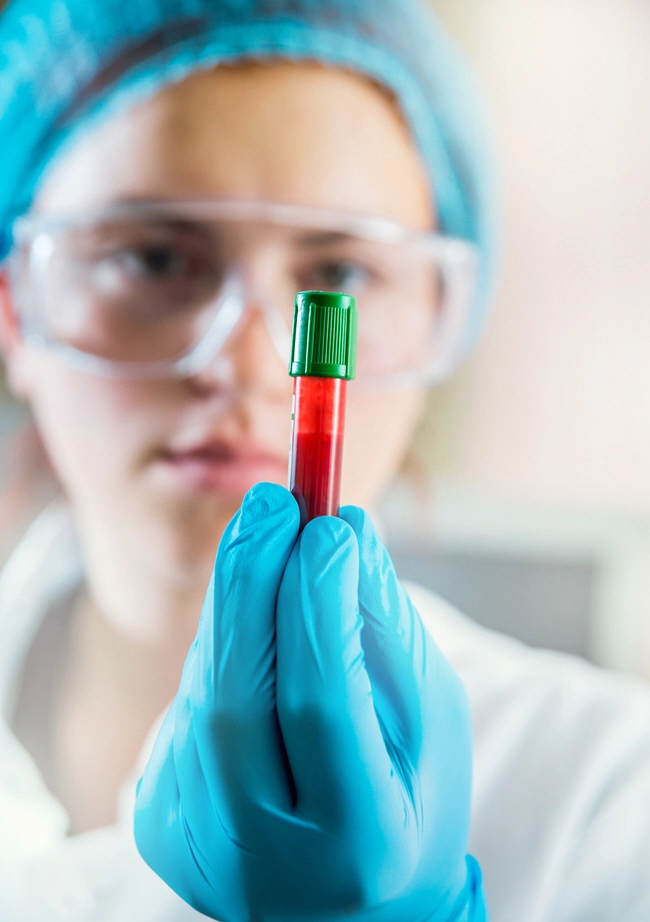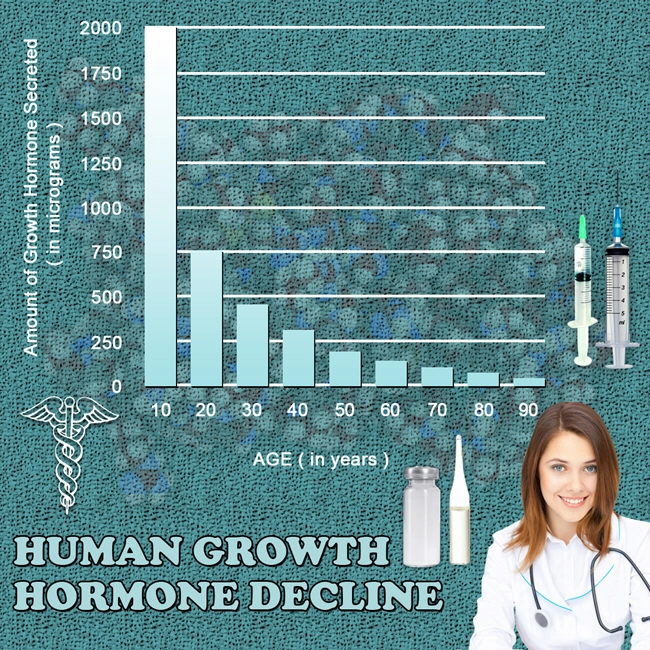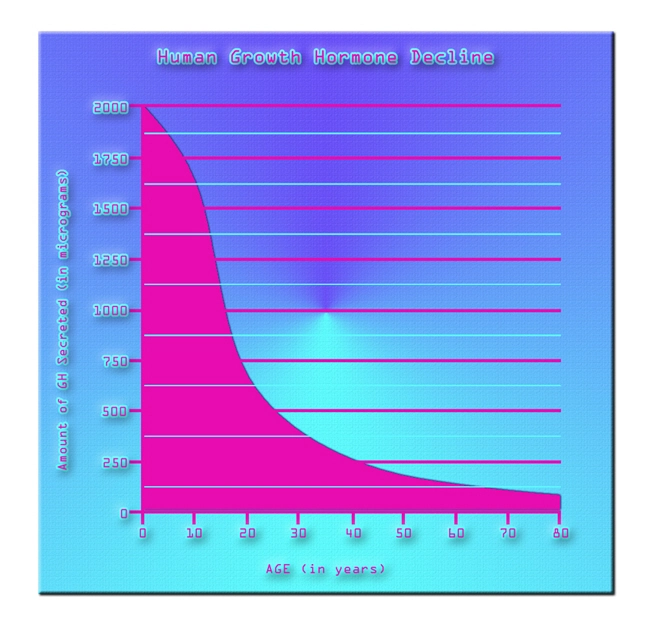
Video Link: https://vimeo.com/252393576
Video Download: Click Here To Download Video
Video Stream: Click Here To Stream Video
Video Link: https://vimeo.com/252393788
Video Download: Click Here To Download Video
Video Stream: Click Here To Stream Video
Video Link: https://vimeo.com/252394024
Video Download: Click Here To Download Video
Video Stream: Click Here To Stream Video
Pregnenolone: The Most Important Hormone You Haven't Heard About
Undoubtedly, you have heard of Human Growth Hormone (HGH); Testosterone, the hormone responsible for males developing masculine characteristics. Estrogen, the female counterpart to testosterone; oxytocin, often referred to as “the love hormone.”
Progesterone, which is a significant contributor to the body's  support for pregnancy. Dehydroepiandrosterone/ Dehydroepiandrostenedione, also known as DHEA, an essential endogenous steroid hormone that is known to have anti-aging properties, and cortisol, the so-called “stress hormone.”
support for pregnancy. Dehydroepiandrosterone/ Dehydroepiandrostenedione, also known as DHEA, an essential endogenous steroid hormone that is known to have anti-aging properties, and cortisol, the so-called “stress hormone.”
All of these hormones (and much more, too numerous to list) play a vital role in maintaining and regulating our body's internal functions.
But there is one hormone that is considered a “precursor” (a substance from which another is formed, in particular by a metabolic reaction) to all of these hormones.
Pregnenolone: The “Mother Hormone.”
Researchers have concluded that pregnenolone is so essential to our continued well-being, and plays so many vital roles in so many areas of our life, that it is worthy of the title “The Mother Hormone.”
Without this "Mother Hormone,” your body couldn't produce other hormones like estrogen, progesterone, testosterone, cortisol, or dehydroepiandrosterone (DHEA).
But why is this?
What is so crucial about pregnenolone that it would often be referred to as “the most important hormone you haven't heard about”?
The answer is simple.
Because pregnenolone is the precursor of the more familiar hormones like cortisol, estrogen, progesterone, testosterone, and DHEA, it seems to have been ignored and overlooked.
But, the research on this hormone is incredibly compelling. Over the years, many researchers have come to regard it as an adaptogen that can transform itself into whatever your body needs, hormone-wise.
Research has discovered that pregnenolone performs several vital functions...and this information was unknown until recently. Here are a few of them...
- Enhanced cognitive function. Pregnenolone has been proven to raise the brain's level of acetylcholine. This is important since this substance is the neurotransmitter that is necessary for normal brain activity.
- Acetylcholine is usually low in Alzheimer's patients. Additionally, pregnenolone also helps keep
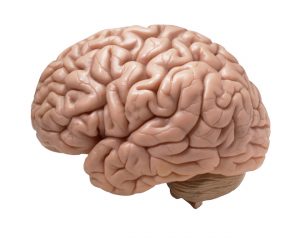 our memories sharp and helps us get to sleep, which is also a significant memory boost.
our memories sharp and helps us get to sleep, which is also a significant memory boost. - Acetylcholine is not only necessary for thought and memory; it also controls sleep cycles, including the phase of sleep that is connected to memory (called the random eye movement [REM] period). Scientists have discovered that it dramatically increases memory-enhancing sleep.
- Pregnenolone has been found to be 100 times more efficient for memory enhancement than other steroids or steroid precursors in laboratory mice. Pregnenolone appears to be one of the most potent memory enhancers yet reported in animals and has been shown to not only make people smarter but boost their moods as well.
- Relief from anxiety. Two University of California, San Francisco studies have demonstrated that pregnenolone is effective in lessening the debilitating effects of depression and anxiety. Anxiety is a common symptom of schizophrenia, a severe mental illness, and patients suffering from schizophrenia quite often have low levels of pregnenolone.
- Easing joint pain. Scientists have concluded that pregnenolone can reduce joint pain and arthritis and gout, even after prescribed treatments have come up short.
- Helping women deal with the headaches of PMS and menopause. Pregnenolone is especially useful in dealing with hot flashes and a lack of sex drive.
- Reducing stress. Pure and straightforward: stress can be a savage killer if not handled correctly. Here, again, pregnenolone can help.
- Combating chemical dependency and alcohol and drug addiction. Addiction is a severe and life-threatening condition that needs to be eradicated immediately in the addict's life. A study published in the Journal of Pharmacological Science reports that pregnenolone can play a role in fighting these demons. Also, a study conducted at the University of North Carolina at Chapel Hill uncovered evidence that pregnenolone plays a crucial role in alcohol tolerance and withdrawal.
- Lower cholesterol. The hits just keep on coming! In one study, pregnenolone lowered average cholesterol levels from 263.5 mg/dl to 187.9 mg/dl. This is
 compelling evidence that sufficient pregnenolone levels are a safe, useful tool in the battle against excess cholesterol.
compelling evidence that sufficient pregnenolone levels are a safe, useful tool in the battle against excess cholesterol. - Fighting Alzheimer's Disease. Evidence suggests that pregnenolone may offer significant neuroprotection in Alzheimer’s disease. When researchers introduced the destructive amyloid-beta protein into animal brains, the level of progesterone (a neurohormone synthesized from its direct precursor, pregnenolone) dropped precipitously.
- In humans, Alzheimer’s disease patients have lower levels of pregnenolone, allopregnanolone (a pregnenolone metabolite), and DHEA-sulfate (DHEAS) in all the main memory-related areas of their brains, compared with control patients.
- DHEA Precursor. Pregnenolone promotes anabolic activity (building or synthesis of tissues); is a precursor to testosterone (a male hormone), and estrogen (a female anabolic hormone); strengthens the immune system by reducing cortisol levels, thereby lowering stress and improving resistance to several diseases; prevents osteoporosis; gives cardiovascular protection by reducing total cholesterol and LDL levels; increases muscle and decreases body fat.
To help you understand pregnenolone and why it is so important, here is a brief history of the hormone, an explanation of how it works, and why you need to make sure your levels of pregnenolone are average.
What is Pregnenolone?
Pregnenolone, like DHEA, is a steroidal hormone manufactured in the body.
Pregnenolone is a precursor hormone synthesized from cholesterol, mostly in the adrenal glands, but also in other parts of the body such as the liver, skin, brain, testicles, ovaries, and retina of the eyes.
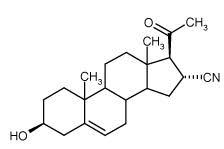 Research on pregnenolone, as well as usage of pregnenolone, dates back as far as the 1930s.
Research on pregnenolone, as well as usage of pregnenolone, dates back as far as the 1930s.
Human studies were conducted in the 1940s on factory workers to test the effect of pregnenolone on fatigue and autoimmune disorders, including rheumatoid arthritis.
The results were promising. However, even though pregnenolone was proving to be both efficient and safe, it was discarded when Merck's newly introduced pharmaceutical agent, cortisone, was announced to be a cure-all for rheumatoid arthritis in 1949.
Soon after cortisone and cortisol came into use, the synthetic steroid hormones dexamethasone, and later prednisone, were introduced.
Remember, these steroids are hundreds of times stronger than pregnenolone (or DHEA).
Because they could be patented, it was far more financially beneficial for pharmaceutical companies to focus on these drugs rather than pregnenolone.
Additionally, these steroids were very fast-acting compared to pregnenolone.
Users and doctors preferred the quick fix. However, these steroidal compounds proved to have serious side effects: compromising the immune system, causing osteoporosis, and other serious complications.
Even though cortisone and cortisol are stress hormones that are natural to the body, they are prescribed in pharmacological doses rather than amounts natural to the body.
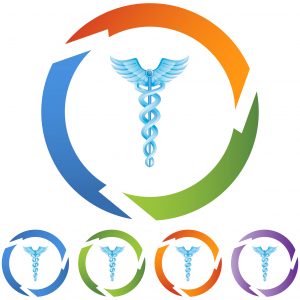 The pharmacological levels at which cortisone and cortisol are administered give them a risk profile similar to that of synthetic hormones.
The pharmacological levels at which cortisone and cortisol are administered give them a risk profile similar to that of synthetic hormones.
In spite of this, pregnenolone is still overlooked for these dangerous but profitable synthetics.
Scientists have been studying the impact of hormones on learning and memory for decades.
Various studies have found that pregnenolone boosts motivation, learning, and long-term memory.
A research group of industrial psychologists researched in the 1940s to test pregnenolone on students and workers for the ability to improve job performance.
They found that the students/workers had a markedly improved ability to learn and remember difficult tasks.
As previously mentioned, despite favorable results, research on pregnenolone halted in the 1950s when cortisone became available as an immediate cure-all.
Because pregnenolone, unlike cortisone, couldn't be patented, pharmaceutical companies (Big Pharma) had no financial incentive to pursue the research.
Regrettably, pharmaceutical companies must answer to their shareholders, and at times this hurts patients. For any substance to be profitable, it must be patentable.
If there were half as many studies done on pregnenolone as the patented drugs, pregnenolone's healing potential would be well-known and used far more than it currently is.
Our Levels of Pregnenolone Drop as We Age
As is the case with so many of our life-giving hormones, aging rears its ugly head again when we look at pregnenolone.
People with lower pregnenolone levels are more likely to suffer from memory deficits, mood disorders, and even some mental illnesses...and all of these afflictions affect elderly people far more than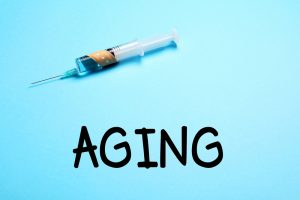 younger age groups.
younger age groups.
As a result of regular aging, critical hormone levels decline, resulting in a detrimental impact on memory and cognitive function.
Scientists believe that the hormone pregnenolone has vast potential for maintaining healthy cognitive function and may be “the most potent memory enhancer yet reported.”
Increasing cognitive function is a crucial goal for any aging baby boomer.
As natural levels of pregnenolone fall, ensuring optimal levels may represent an essential addition to every adult’s cognitive wellness program.
Substantial evidence from animal studies suggests that neurosteroid levels, including pregnenolone, diminish with advancing age.
As pregnenolone is the parent compound of other vital neurosteroids such as dehydroepiandrosterone (DHEA), declining levels of pregnenolone could leave brain cells increasingly vulnerable to damage, such as overstimulation by neurotransmitters like glutamate.
In fact, scientists have proposed that levels of neurosteroids such as pregnenolone could serve as biological “markers” of cognitive aging in laboratory animals, allowing us to examine the age-related impact of each neurosteroid on learning and memory.
Some human studies have also shown a link between neurosteroid levels (especially DHEA) and cognitive function, although more research is still needed.
Many physicians and scientists believe that the restoration of pregnenolone to youthful levels is a significant step in the treatment of aging and symptoms of aging.
Pregnenolone may be one of the most critical hormones because it seems to have a balancing effect. It is a precursor to many other hormones and may be able to bring the levels of other hormones up or down as needed.
As with DHEA, pregnenolone levels naturally peak during youth and begin a long, slow decline with age.
While our youth-giving hormones are diminishing, the disease of aging begins to make its unwelcome presence known.
The symptoms of this uninvited guest? Fatigue, brain fog, visual and hearing impairment, joint aches and pains, cardiovascular disease, and erectile dysfunction in men, and loss of libido in both sexes, just to name a few.
Supplementing small amounts of these neurohormones may slow these age-related processes, improving one's quality of life by returning the body to its more youthful state.
 By the age of 75, our bodies produce 60% less pregnenolone than the levels produced in our mid-thirties.
By the age of 75, our bodies produce 60% less pregnenolone than the levels produced in our mid-thirties.
For this reason, pregnenolone is one of the biomarkers of aging.
Like counting the rings of a tree, by measuring the level of pregnenolone at any given point of a person's life, it is often possible to make an educated guess as to his or her age.
Some other hormones that decline with age are DHEA, estrogens, testosterone, progesterone, and growth hormone.
These are considered biomarkers of aging as well. Since pregnenolone provides the initial raw material from which all the other steroid hormones are made, some of our other hormones will decline similarly.
How Pregnenolone Works
Pregnenolone is the primary hormone in the pathway that stimulates a host of the leading neurohormones in the brain that affect nerve cell growth and control various moods.
Pregnenolone thus has an impact on a host of nervous system functions. This has been proven in studies that have shown pregnenolone’s ability to lower the risk of dementia and ramp up memory, while also easing anxiety and combatting depression.
Memory formation is still one of the intriguing functions of the brain.
Pregnenolone is a critical molecule in this process because it is a critical hormone that is (as mentioned above) the precursor of several other crucial hormones in the body.
Substantial evidence exists that shows pregnenolone levels drop with advancing age and that replenishing these levels may help envigorate deteriorating brain  function.
function.
Before we review how pregnenolone upgrades memory, let’s begin by looking at the physiology of this vital hormone.
The transformation of cholesterol to pregnenolone is the initial step in the synthesis of many of the body’s essential hormones.
Pregnenolone is an indispensable building block, being the earliest (and arguably the most versatile) hormone in an avalanche of molecular events.
Pregnenolone’s final products fill numerous significant roles in the body, from generating memory by excitatory pathways to easing anxiety through inhibitory mechanisms.
Pregnenolone was initially considered to be made only in the adrenal glands and gonads (ovaries and testes).
It was unexpectedly discovered that the central nervous system (brain and spinal cord) also synthesizes this hormone.
The finding that specific steroids are produced and act in the central nervous system has led to the designation “neurosteroids.”
Another term, “neuroactive steroids” is often used for hormones that may be made elsewhere in the body but have forceful functions in the nervous system.
Neurosteroids and neuroactive steroids can have influential effects on how individual nerve cells operate.
Researchers have discovered that these complicated tiny 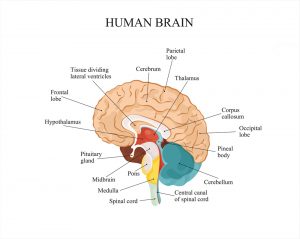 molecules can act in ways indistinguishable from the more common neurotransmitters: the chemical messengers between nerve cells.
molecules can act in ways indistinguishable from the more common neurotransmitters: the chemical messengers between nerve cells.
Missing or low concentrations of neurosteroids during development and in adults may be linked with psychiatric, or behavioral disorders.
To get a superb feel for just how vital a role pregnenolone plays in the nervous system, let’s take a quick tour of the mysteries of memory and emotion.
To keep things simple, remember this: brain cells, or neurons, are either being stimulated or suppressed.
The majority of memory formation occurs due to the stimulation of nerve cells.
Stimulation usually causes the production of nerve branches, which connect to new neurons, making the brain's “switchboard” bulkier and more complicated.
These structures come together by activating select “switches” in the brain. While there are several excitatory switches, the category named NMDA (N-methyl-D-aspartate) channels (or receptors) comprises the most meaningful group.
These channels must be activated for learning and memory to occur.
Now, here’s the fun stuff! The most prevalent excitatory brain chemical that stimulates memory-enhancing NMDA receptors is the amino acid glutamate, which is present all through the brain.
While glutamate is essential for normal learning, excessive excitation by glutamate over time can injure neurons.
In fact, overstimulation, or excitotoxicity, by glutamate is considered one of the inherent factors in neurodegenerative disorders such as Alzheimer’s disease...a classic example of “too much of a good thing.”
Pregnenolone is essential since it seems to activate the NMDA channels through a mechanism independent of glutamate, which then may account for the neuroprotective effects of pregnenolone on brain cells.
 The bottom line of all this is that pregnenolone may play an indispensable role both in creating memories and then preventing their loss by protecting the nerve networks that house them.
The bottom line of all this is that pregnenolone may play an indispensable role both in creating memories and then preventing their loss by protecting the nerve networks that house them.
These complementary and versatile actions of pregnenolone have sent shock waves of interest through the scientific community due to the enormous implications for treating many age-related disorders of memory.
A plunge in cognition as seen in Alzheimer’s disease is linked with decreased neurosteroid levels.
Alzheimer’s disease is characterized by a build-up of harmful amyloid-beta plaques in the brain that block communication between nerve cells and disrupt the activities that brain cells need to survive.
Therefore, it appears that as natural levels of pregnenolone and other neurosteroids diminish with aging and the appearance of neurodegenerative diseases, supplementing with these compounds could have a neuroprotective effect.
This is precisely what researchers have discovered!
French scientists have led the way in this area with their study of the consequences of pregnenolone on cognitive aging. In fact, the results have been staggering, with pregnenolone sulfate (the form found in brain tissue) totally reversing memory deficits in older, memory-impaired rats.
Combined with prior findings that pregnenolone promotes nerve cell growth (neurogenesis), researchers have determined that pregnenolone can enhance cognitive function in older animals by increasing acetylcholine levels, which trigger new nerve cell growth in the brain areas most closely related to memory and learning.
Scientists from the VA Medical Center in St. Louis explored pregnenolone’s benefits in memory retention in animals that entailed learning to avoid a mild electric shock to the foot.
Unexpectedly, they discovered that pregnenolone displayed beneficial effects in uplifting memory retention at almost minuscule doses.
They also concluded that the response to pregnenolone was quicker than expected than if the supplement had been working as a typical neurosteroid, leading to the conclusion that something much more exceptional was going on.
A Team of French Researchers Uncovered the First Key to Pregnenolone’s Quick Action
They studied the effect of pregnenolone sulfate in mice after the administration of a drug called scopolamine, which halts the formation of memories by inhibiting receptors for the neurotransmitter acetylcholine in the brain.
They determined pregnenolone could rapidly prevent the learning deficit caused by scopolamine.
Such a quick effect of pregnenolone on memory processes led the team to conclude that it may be acting directly at receptor sites that are known to be active in memory formation.
In other words, the researchers had confirmed that pregnenolone has both neurosteroid-like and neurotransmitter-like activities...a huge breakthrough in the treatment of memory impairment.
 Another group of French researchers may have uncovered another function of pregnenolone in learning.
Another group of French researchers may have uncovered another function of pregnenolone in learning.
They determined that pregnenolone accelerated the construction of ultramicroscopic structures called microtubules in brain cells.
Microtubules are mostly miniature intracellular “muscles” that nerve cells use to modify their structures, making the new connections that form the “structure” of memory.
In fact, pregnenolone’s dramatic effect on “bulking up” nerve cells’ internal muscles brought exciting interest in the hormone in France, where, in 2004, a new private company was formed to create pregnenolone derivatives as pharmaceutical drugs for memory improvement and treating Alzheimer’s disease.
Pregnenolone Can Both Excite and Inhibit Brain Cell Activity
Pregnenolone and its family members both stimulate and suppress brain cell activity in a fashion that maintains tight control over brain function.
Why is this important? Keep reading.
Research of memory improvement by rousing brain cells has led to the realization that overstimulating these pathways can also cause tension.
Also, most anti-anxiety drugs come with a host of unpleasant side effects, and they also impair memory and learning.
Quite often, substances that boost memory have the risk of increasing anxiety, whereas those that relieve stress can reduce memory. Talk about a vicious circle!
Where Pregnenolone Fits Into This Apparent Paradox
Again, there’s exceptionally good news related to the speed with which pregnenolone acts on nerve cells, and in its role as the “parent” hormone that quickly gives rise to other hormones to counter any adverse effect of overstimulating neuronal pathways.
By delivering a reserve of raw material, adequate pregnenolone levels allow brain cells to produce the right chemical (excitatory or anti-anxiety) at the moment when each is needed.
Here’s how it works: just as pregnenolone itself acts at excitatory receptors in the brain to stimulate nerve cell activity and enhance learning, other neurohormones produced from pregnenolone (such as allopregnanolone) act on inhibitory brain receptors, called gamma-aminobutyric acid (A) (GABA(A)) receptors, which suppress brain cell activity to produce a calming, anti-anxiety, and sleep-inducing effect.
receptors, which suppress brain cell activity to produce a calming, anti-anxiety, and sleep-inducing effect.
Talk about perfect balance!
The chance that thousands of older adults may suffer from low pregnenolone levels is real...very real.
However, there is evidence supporting pregnenolone supplementation to prevent or lessen memory loss and a wide array of other mental and emotional health issues.
One caution: some cancers may grow quickly due to the presence of sex hormones derived from pregnenolone. Knowing this, you must discuss pregnenolone supplementation with your doctor to get the green light to try supplementing with pregnenolone.
Dosage
Many people do great on small doses of this supplement, and this is especially the case when estrogen levels need a boost.
Raising low estrogen levels naturally (synthetic hormones are not handled well by many women) has been very challenging.
Pregnenolone has shown the ability to help with this troublesome problem.
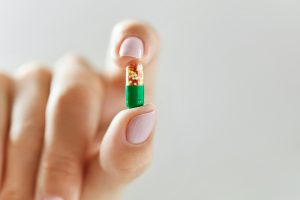 Remember, Pregnenolone is made from cholesterol.
Remember, Pregnenolone is made from cholesterol.
In the laboratory, it is derived from wild yam, and therefore it's a perfectly natural product.
This explains why we are seeing a growing trend among health professionals recommending it as a natural alternative to other types of hormone replacement.
A recommended dose is to start with one tablet of 5 milligrams of pregnenolone per day and slowly progress up to two per day.
Our knowledge of pregnenolone is at an exciting early stage.
What we now know is that this potent hormone exerts beneficial effects on vital brain structures, improving how we think, learn, and remember.
And, countless new studies are now happening now that will allow us to find out more about how pregnenolone can help protect and promote healthy brain operation.
References
Enhancing Cognitive Function with Pregnenolone
Understanding Adrenal Function
Contact Us Today For A Free Consultation
Dear Patient,
Once you have completing the above contact form, for security purposes and confirmation, please confirm your information by calling us.
Please call now: 1-800-380-5339.
Welcoming You To Our Clinic, Professor Tom Henderson.

- The Benefits of Centrophenoxine [Last Updated On: April 17th, 2024] [Originally Added On: December 23rd, 2020]
- A Beginners Guide To Nootropics And So-Called "Smart Drugs" [Last Updated On: April 13th, 2024] [Originally Added On: December 25th, 2020]
- Take Your Brainpower to the Next Level with Noopept [Last Updated On: April 20th, 2024] [Originally Added On: December 29th, 2020]
- The Calming Benefits of L-Theanine [Last Updated On: April 17th, 2024] [Originally Added On: December 31st, 2020]
- Modafinil: Is it the Real-Life NZT-48? [Last Updated On: April 19th, 2024] [Originally Added On: January 1st, 2021]
- Growth Hormone and Nutrition [Last Updated On: April 18th, 2024] [Originally Added On: October 14th, 2021]
- Growth Hormone and L-Carnitine [Last Updated On: April 23rd, 2024] [Originally Added On: October 14th, 2021]
- Growth Hormone and Piracetam [Last Updated On: June 6th, 2024] [Originally Added On: October 14th, 2021]
- Growth Hormone and DMAE [Last Updated On: April 22nd, 2024] [Originally Added On: October 15th, 2021]
- Growth Hormone, Testosterone, and Aniracetam [Last Updated On: April 21st, 2024] [Originally Added On: October 15th, 2021]
- Growth Hormone and Phosphatidylserine [Last Updated On: April 14th, 2024] [Originally Added On: October 15th, 2021]
